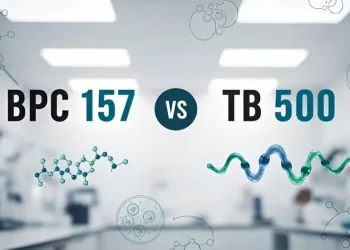Cholesterol often gets a bad rap, but it’s important to understand that not all cholesterol is created equal. In simple terms, cholesterol is a waxy substance found in your blood that your body needs to build healthy cells. There are two main types: LDL (low-density lipoprotein), often referred to as “bad” cholesterol, and HDL (high-density lipoprotein), known as “good” cholesterol. While your body needs some cholesterol to function properly, having high levels of LDL can lead to health issues, including heart disease.
Maintaining healthy cholesterol levels is crucial for overall wellness. It can help reduce the risk of heart disease, stroke, and other cardiovascular problems. The good news is that you can make natural lifestyle changes to help manage your cholesterol levels effectively. This article will focus on practical, natural strategies—like dietary changes, exercise, and lifestyle adjustments—rather than medical advice.
Just a heads-up: this is not a substitute for professional medical advice, but a starting point for natural ways to get those cholesterol levels in a happy place. Let’s dive in!
🍽️Dietary Changes: Eat Your Way to Better Cholesterol
Foods to Emphasize
Making smart food choices is one of the most effective ways to manage your cholesterol levels. Here are some foods to include in your diet:
Fiber-Rich Foods
Fiber is your friend when it comes to lowering cholesterol. It helps reduce the absorption of cholesterol in your bloodstream. Here are some fiber-rich options:
- Oats: Start your day with a bowl of oatmeal. It’s not only filling but also packed with soluble fiber, which can help lower LDL cholesterol.
- Whole Grains: Choose whole grain bread, brown rice, and quinoa over refined grains. They provide more fiber and nutrients.
- Fruits and Vegetables: Apples, pears, berries, and leafy greens are excellent sources of fiber and antioxidants.
Healthy Fats
Not all fats are bad! Incorporating healthy fats into your diet can actually help improve your cholesterol levels.
- Avocados: These creamy fruits are rich in monounsaturated fats, which can help lower LDL cholesterol.
- Nuts and Seeds: Almonds, walnuts, and chia seeds are great sources of healthy fats and fiber.
- Olive Oil: Use extra virgin olive oil as your primary cooking oil. It’s rich in antioxidants and healthy fats.
Fatty Fish
Fatty fish are a fantastic source of omega-3 fatty acids, which can help lower triglycerides and improve heart health.
- Salmon and Tuna: Aim to include fatty fish in your diet at least twice a week. Grilled, baked, or even canned, they’re delicious and nutritious.
Soy Products
Incorporating soy products can also be beneficial for cholesterol management.
- Tofu and Edamame: These plant-based proteins are low in saturated fat and can help lower cholesterol levels.
Foods to Limit or Avoid
While there are plenty of foods that can help you lower your cholesterol, there are also those you should limit or avoid:
Saturated Fats
Saturated fats can raise your LDL cholesterol levels. Limit your intake of:
- Red Meat: Choose lean cuts and limit consumption.
- Processed Foods: Many processed snacks and meals contain unhealthy fats.
Trans Fats
Trans fats are particularly harmful and should be avoided altogether. They can raise LDL cholesterol and lower HDL cholesterol.
- Fried Foods and Baked Goods: Check labels for partially hydrogenated oils, which indicate the presence of trans fats.
Excessive Refined Sugars and Processed Carbohydrates
High sugar intake can lead to weight gain and increased cholesterol levels. Limit:
- Sugary Drinks: Sodas and sweetened beverages can contribute to high cholesterol.
- White Bread and Pastries: Opt for whole grain options instead.
Simple Meal Planning Tips
Making healthy choices doesn’t have to be complicated. Here are some meal planning tips to help you get started:
- Healthy Breakfasts: Try oatmeal topped with berries and nuts or a smoothie with spinach, banana, and almond milk.
- Lunch Ideas: Opt for a salad with mixed greens, chickpeas, avocado, and a drizzle of olive oil.
- Dinner Options: Grilled salmon with quinoa and steamed broccoli makes for a nutritious meal.
- Snacking Strategies: Keep healthy snacks on hand, like fresh fruit, nuts, or yogurt.
- Reading Food Labels: Familiarize yourself with reading nutrition labels to make informed choices..
🏋🏼♂️ Exercise and Physical Activity
Benefits of Regular Exercise
Regular physical activity is a powerful tool for managing cholesterol levels. Exercise can help raise HDL (good) cholesterol while lowering LDL (bad) cholesterol. It also improves overall cardiovascular health, making your heart stronger and more efficient.
Types of Exercise
Incorporating different types of exercise into your routine can keep things interesting and effective:
1. Aerobic Exercise
Aerobic activities are great for heart health. Consider:
- Walking or Jogging: Aim for at least 150 minutes of moderate-intensity aerobic exercise each week. A brisk walk or a light jog can significantly improve your cardiovascular health.
- Swimming: A low-impact option that’s easy on the joints while providing a full-body workout.
- Cycling: Whether on a stationary bike or outdoors, cycling is an excellent way to get your heart rate up.
2. Resistance Training
In addition to aerobic exercise, resistance training can also be beneficial for managing cholesterol levels:
- Weightlifting: Incorporating weights into your routine can help build muscle and improve metabolism.
- Bodyweight Exercises: Push-ups, squats, and lunges are effective ways to strengthen your body without needing equipment.
Recommended Activity Levels
To reap the benefits of exercise, aim for:
- Moderate-Intensity Exercise: This includes activities that raise your heart rate but still allow you to hold a conversation, like brisk walking or dancing.
- Strength Training: Include resistance exercises at least two days a week to build muscle and support overall health.
Tips for Staying Motivated
Staying active can sometimes be a challenge, but here are some tips to keep you motivated:
- Find Activities You Enjoy: Whether it’s dancing, hiking, or playing a sport, choose activities that make you happy.
- Set Realistic Goals: Start small and gradually increase your activity level. Setting achievable goals can help you stay on track.
- Buddy Up: Exercising with a friend or family member can make workouts more enjoyable and keep you accountable.
🌱Lifestyle Adjustments
Stress Management
Chronic stress can negatively impact your cholesterol levels and overall health. Here are some techniques to help manage stress:
- Meditation: Taking a few minutes each day to meditate can help calm your mind and reduce stress.
- Yoga: This practice combines physical movement with mindfulness, promoting relaxation and stress relief.
- Deep Breathing: Simple deep breathing exercises can help lower stress levels and improve your overall sense of well-being.
Quitting Smoking
If you smoke, quitting can have a significant positive impact on your cholesterol and heart health. Smoking lowers HDL cholesterol and damages blood vessels. Resources for quitting include:
- Support Groups: Many communities offer programs to help you quit smoking.
- Counseling: Professional support can provide strategies and encouragement.
- Nicotine Replacement Therapy: Options like patches or gum can help ease withdrawal symptoms.
Adequate Sleep
Getting enough quality sleep is essential for overall health, including cholesterol management. Aim for 7-9 hours of sleep each night. Here are some tips for improving sleep quality:
- Establish a Routine: Go to bed and wake up at the same time each day.
- Create a Relaxing Environment: Keep your bedroom dark, quiet, and cool.
- Limit Screen Time: To improve sleep quality, avoid screens at least an hour before bedtime, as the blue light emitted can interfere with your body’s natural sleep-wake cycle.
Hydration
Staying hydrated is crucial for overall health. Drinking enough water helps your body function optimally and can support your efforts to manage cholesterol levels. Aim for at least 8 cups (64 ounces) of water a day, and consider herbal teas for added benefits.
Natural Supplements (with Caution)
While dietary changes and lifestyle adjustments are key, some natural supplements may also help manage cholesterol levels. However, it’s essential to approach these with caution and consult a healthcare professional before starting any new supplement.
1. Fiber Supplements
Fiber supplements like psyllium husk and oat bran can help lower cholesterol levels. They work by binding to cholesterol in the digestive system and helping to eliminate it from the body.
2. Omega-3 Supplements
Fish oil and flaxseed oil are rich in omega-3 fatty acids, which can help lower triglycerides and improve heart health. Again, consult with a healthcare professional to determine the right dosage for you.
3. Other Supplements
There are various other supplements that claim to support cholesterol management, such as plant sterols and red yeast rice. However, the scientific backing for these can vary, so it’s crucial to discuss them with a medical professional before use.
Conclusion
Lowering your cholesterol levels naturally is achievable through a combination of dietary changes, regular exercise, and lifestyle adjustments. By focusing on fiber-rich foods, healthy fats, and physical activity, you can take proactive steps toward better heart health. Remember, these strategies are supportive measures and not a substitute for medical advice. Always consult with a healthcare provider before making significant lifestyle or dietary changes.
FAQs
1. How quickly can I see results from lifestyle changes?
Many people notice improvements in their cholesterol levels within a few weeks to a few months after making dietary and lifestyle changes. However, individual results may vary.
2. Are there any natural remedies I should avoid?
While many natural remedies can be beneficial, some may interact with medications or have side effects. Always consult with a healthcare professional before trying new supplements or remedies.
3. Can I still eat my favorite foods?
You don’t have to give up your favorite foods entirely. Instead, focus on moderation and balance. Enjoy treats occasionally while prioritizing healthier options most of the time.
4. Is exercise really that important for cholesterol management?
Yes! Regular exercise can help raise HDL (good) cholesterol and lower LDL (bad) cholesterol, making it a crucial component of managing cholesterol levels.
5. What if I have high cholesterol despite making lifestyle changes?
If you’ve made significant lifestyle changes and still have high cholesterol, it’s essential to consult with a healthcare professional. They can provide personalized advice and may recommend additional interventions.
Disclaimer
This article provides general information, and images are for reference only. It is not a substitute for professional medical advice, diagnosis, or treatment. Always consult a specialist or your doctor for more information. Well Health Organic does not guarantee the accuracy, completeness, or reliability of the information provided. We do not endorse any products mentioned in the article or through external links


















